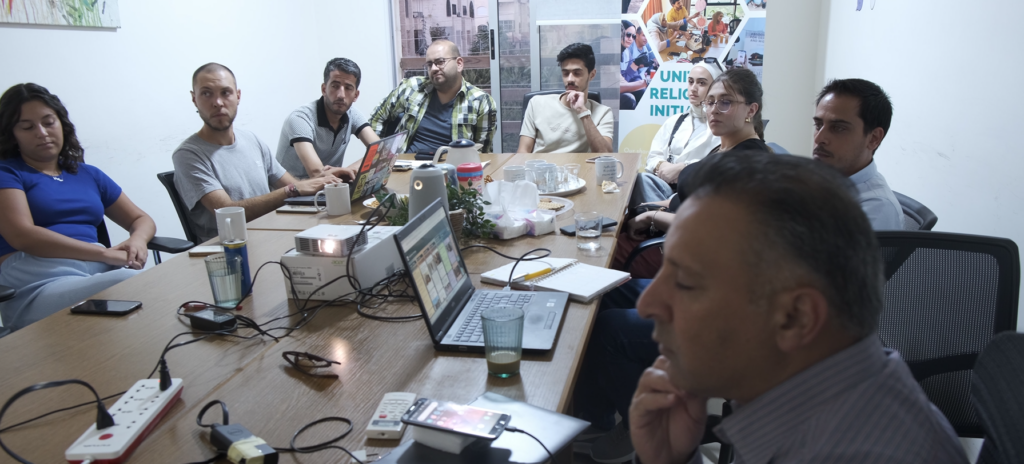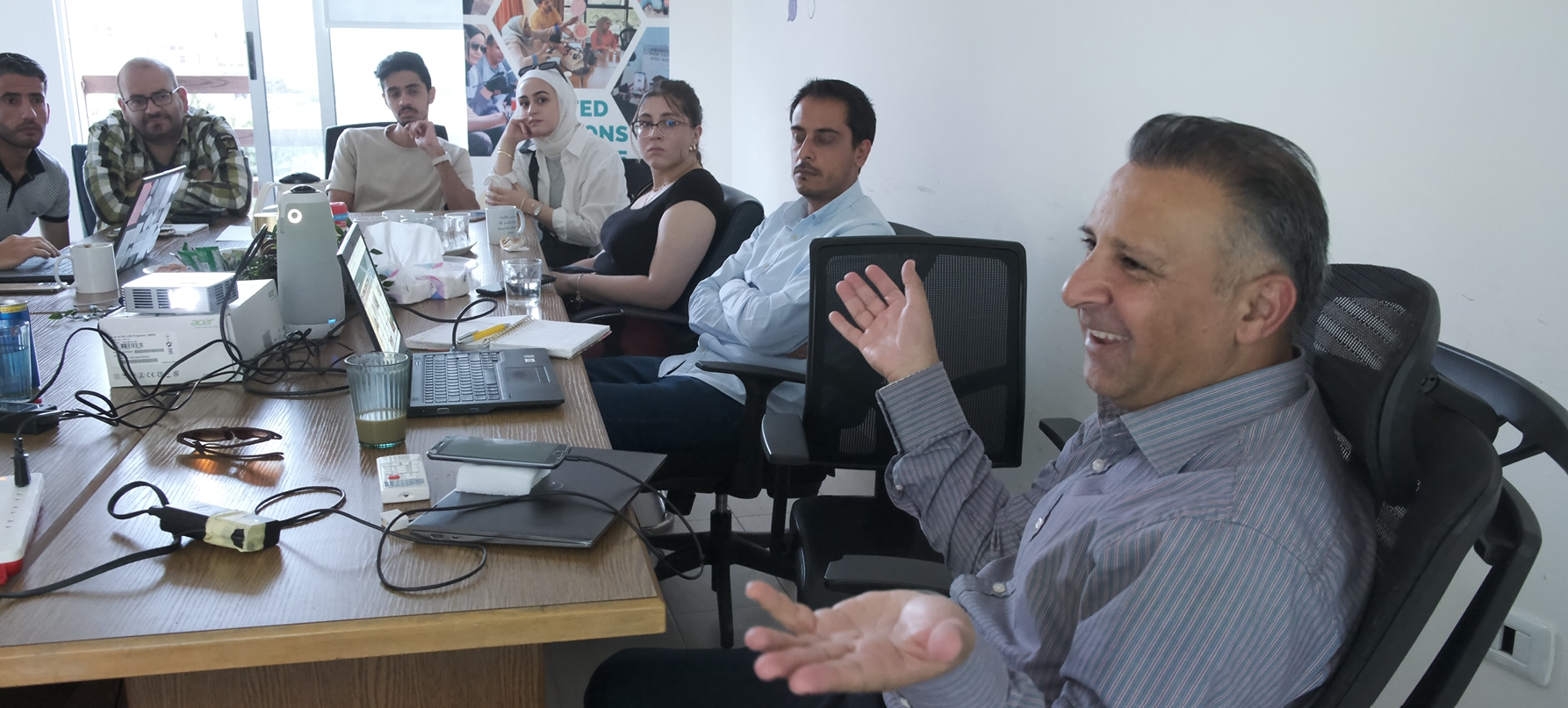On September 30th, we had the second session of our Culture Café series, where we explored the different religions in Germany. Germany is known as a secular country. Mariam, a German volunteer at URI MENA who practices Islam, shared her experiences as a Muslim living in Germany.
When Mariam asked us what Germany is famous for, people mentioned cars and football, but not religion. And when people do think about religion in Germany, they usually think of Christianity, not Islam. In almost every city in Germany, you can find churches, usually built in the city center and in a gothic style.
Mariam made her presentation interactive, and we discussed the differences between the lives of Muslims in Jordan and in Germany. She told us that being a Muslim in Germany can be difficult, and her presentation was not meant to judge Germany, but to highlight the challenges of racism, discrimination, and other difficulties that Muslims face in the country.
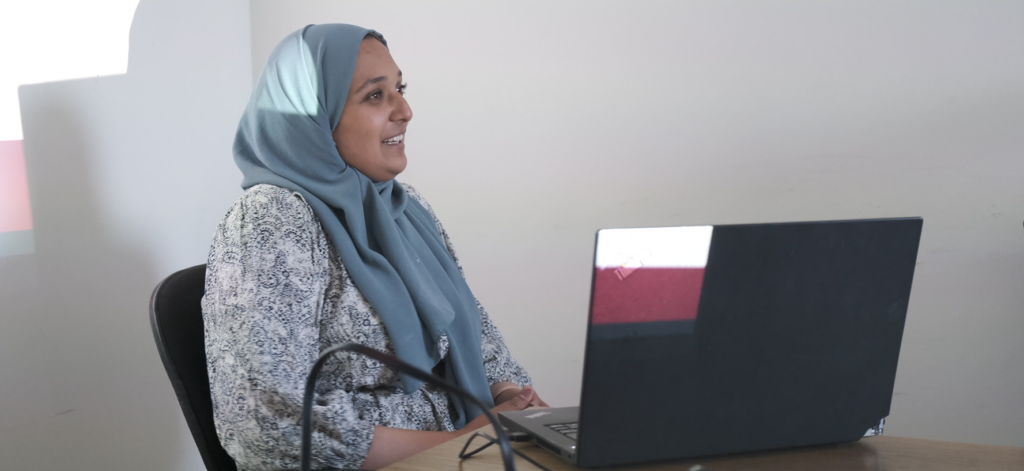
Germany as a Secular State?
Germany sees itself as a secular country. This means it doesn’t have a specific religious affiliation. In theory, there should be no connection between the state and religion, but as Mariam explained, the reality is different. That becomes visible for example in the German constitution with the sentence “Aware of its responsibility before God and humankind.” But which God is the constitution referring to – the God of Christians, Jews, Muslims? Even though Germany is a secular state, there are ongoing debates about how religion should be treated.
These debates are common in Germany, and because the country is divided into 16 states, each state makes its own decisions about how to handle these religious issues and what it means to be a neutral, secular state. This means that religious freedom and practice can be different from state to state. One of the most discussed topics is the Hijab. Some states allow teachers to wear it, while others don’t. In the end, most states have allowed teachers to wear the Hijab.
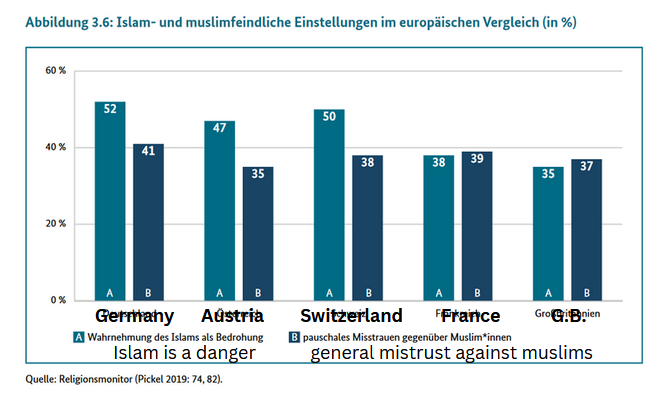
Fact Check
In Germany, there are about 5.6 million Muslims, which is about 6.7% of the population. There are 2,858 mosques in Germany. Even though Muslims are a small minority, there is a lot of discussion about Muslims in Germany and Islam is a frequent topic of public debate.
Mariam shared a recent study on “Islamophobia,” which means having a negative view of Islam and seeing it as a threat. The study shows alarming facts about how people in Germany think about Muslims and unfortunately, there hasn’t been much improvement about it in the past ten years. About 50% of Germans constantly have a skeptical view about Muslims. This mistrust towards Muslims is higher in Germany compared to other European countries.
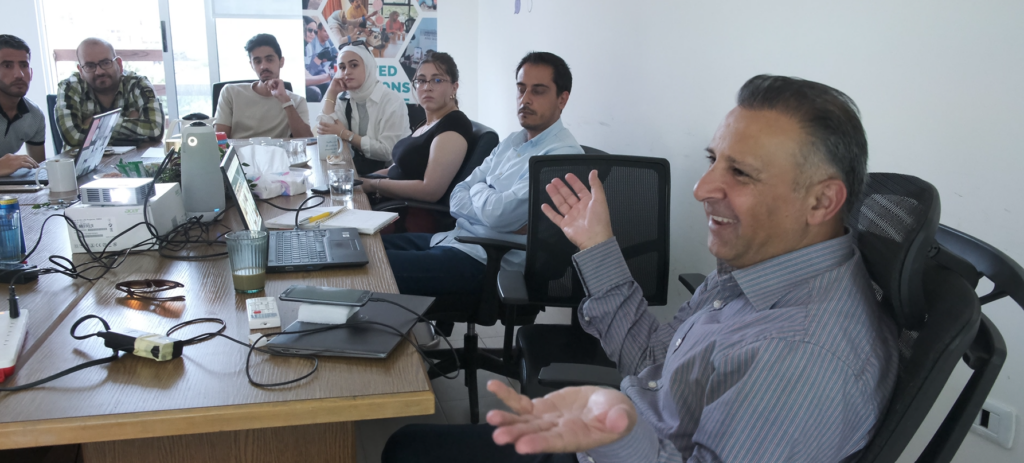
Stereotypes in Germany
There are many misconceptions about Muslims in Germany. Some people mistakenly believe that all Arabs are Muslims, not realizing that there are Christian Arabs too. Other stereotypes include thinking that all Muslims have dark skin, that all men have beards, and that all women wear the Hijab. There’s also a common misconception that Muslim women have fewer rights. In general, many people see Muslims as very different from themselves.
In addition to these physical stereotypes, Muslims are also sometimes unfairly labeled as “backward,” “poorly integrated,” “violent,” or even “terrorists.” Many people try to distance themselves from this perceived threat. Mariam shared her own experiences and confirmed that she has faced these biases and discriminations, especially in eastern parts of Germany. The level of prejudice and racism can vary by region, which is why many Muslims and migrants tend to stick to communities where they feel more accepted and avoid areas in eastern Germany.
There’s also a noticeable difference in how stereotypes and discrimination are experienced by men and women. Women are often seen as victims who need saving from their male counterparts, while male Muslims are sometimes unfairly seen as criminals or troublemakers. In our further discussion, we talked about other common stereotypes, such as the idea that Muslims are “noisy” or come from “large families.”
But why do people hold these beliefs about Muslims? Why do they associate them with terrorism instead of recognizing positive examples like the footballer Franck Ribery or the boxer Cassius Clay, who openly practice their Islamic faith? Given Islam’s long history in Germany and the positive references to it in famous German novels and by prominent figures like Johann Wolfgang von Goethe: “foolish that everyone in his case ´praises his particular opinion! If Islam means devotion to God, in Islam we all live and die!” raises questions about why these misconceptions still persist.
After these reflections, Mariam ended our Culture Café session on a positive note. She expressed gratitude for growing up in her hometown of Bremen and appreciated being raised in a secular state. This environment gave her the chance to explore a wide range of literature, art, philosophy, and religions. It provided her with a broad knowledge base and a variety of experiences with different ideologies from around the world.
